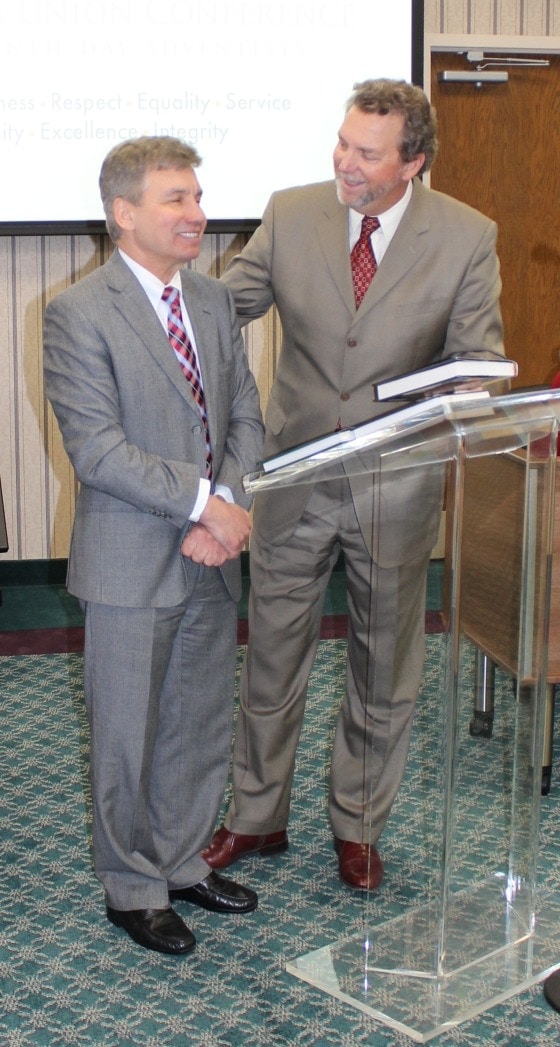
and
Adventist editors have completed a 23-year endeavor to translate the Bible into modern Russian and make it more accessible to Russian speakers.
Bibles, which were scarce during the Soviet era, are easy to obtain in Russia these days, but for more than a century the only complete Russian Bible was an 1875 translation that contains archaic language no longer in use.

Mikhail P. Kulakov, a scholar and former Euro-Asia Division president, spent nearly the last two decades of his life spearheading the Bible’s translation into modern Russian. His son, Mikhail M. Kulakov, took over the project when his father died in 2010.
Last week, 23 years after it began, the completed Bible arrived at the printers.
Mikhail M. Kulakov, director and editor-in-chief of the Bible Translation Institute at Washington Adventist University in Takoma Park, Maryland, said he looked forward to distributing the Bible and giving its readers a new sense of God’s closeness in the Lord’s Prayer, the Psalms, and Isaiah.
“I loved the translation which we had access to,” he said, referring to the 1875 translation. “But I did not realize that there is greater richness and depth of meaning in those passages.”
The Bible Translation Institute led the project but also worked with Russian Orthodox scholars in refining the text. Portions of the new Bible have been posted on Catholic, Baptist, Lutheran, and Russian Orthodox websites as they became available over the years.
A version of the translation with the New Testament and Psalms was published several years ago and can be purchased at Adventist Book Centers across the United States, on Amazon, and at russianbible.org.
The new Bible is the second to be released in contemporary Russian. The first translation was published by the Russian Bible Society in 2011.
Dave Weigley, president of the Adventist Church’s Columbia Union, prayed for the distribution of the Adventist-edited Bible at a meeting this week. He prayed that the knowledge of Jesus’ second coming would be made known to many as a result of the work.
This is adapted from a story published by the Columbia Union Visitor, where Bernard works as assistant editor.